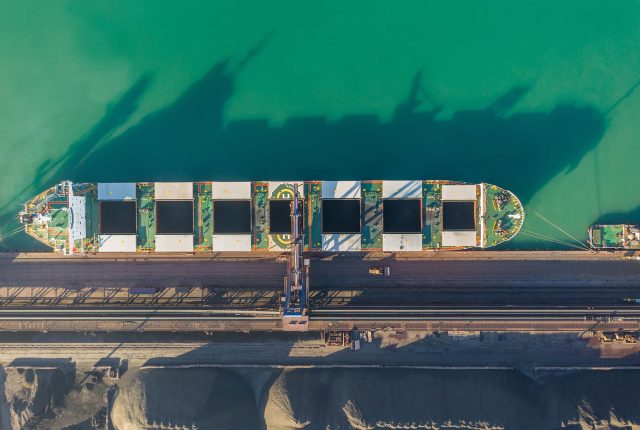
URSBLOG: In Transit
If you ever want to get a feeling of how intricately the world is connected, and take the temperature of the health of globalization, you can do worse that spend a few minutes and watch people come and go and a busy hub airport, especially on that is not in the US, EU, UK, China or Japan, but one whose whole purpose is to connect, rather than be a departure point or destination in itself. It is illuminating.
I found myself yesterday morning at Istanbul Airport, the newer one, in transit, on my way to far east Asia. The airport is huge, airy and spacious, certainly an improvement on the old one, but also a bit colder and austere, which is not necessarily a bad thing. Airports, in my view, are places where people get on and off planes, and airports designed to do that easily, efficiently, painlessly and most importantly with as least stress as possible will always get my vote. Those airports that are huge excuses for a ‘retail experience’, dragging you through mazes of duty free and other merchandise you would never consider in your normal life increasingly annoy me.
The unique thing for me about Istanbul Airport is the variety and diversity of destinations. It has an extensive network in Europe of course, and the Middle East which is to be expected, but also Africa, south Asia, and as well as the usual larger airports in the Far East and the US, a few of the smaller ones too. But what jolted me was seeing Moscow pop up on the departures board.
Living in the ‘west’ as I do, I guess I was under the impression that Russia had been thoroughly isolated, with no-one getting in or out, just like the darkest days of the Cold War. But this was my mistake, because indeed there were many Russian voices heard as I wandered around the various walkways of the main terminal. And why not? Turkey (or should I say Türkiye? I get confused) remains an important ‘in-between’ country, a member of NATO with nonetheless strong connections with Russia, culturally, diplomatically and militarily. It also remains an important tourist destination.
But leaving aside the destinations, it was the people walking by that interested me. The variety of nationalities, cultures, dress and attitudes was incredible. I found myself idly imagining stories for different people, their families, trying to guess where they were coming from and where they were going to, and what for, at the same time trying to stop myself from generalizing and stereotyping.
The business lounge, where I retreated to eat and catch up with things on my laptop, was not the predominantly male, pale and stale reserve you find in other airports. Apart from the food – which is the best food I have had in a lounge for a long time – there was a very relaxed and almost jovial atmosphere, with groups and families enjoying themselves. I wondered whether this was because it was Easter (Catholic Easter at least) and because of the holiday traffic. But listening in I heard Turkish voices, and then I remembered that there are about 20 million people surrounding the airport that want to travel abroad and have fun, so why not have a glass of wine or two before they got on the plane?
The tragic accident in Baltimore this week as the container vessel Dali hit the Francis Scott Key Bridge causing it to collapse instantaneously created a great deal of media coverage, and opinions. My immediate thoughts were: well there may be ships stranded, but the cargo will continue to find its way, one way or the other; and gosh, aren’t ships strong these days?
The last few years have brought to light a number of occasions where despite conflict, collisions, blockages and restrictions, through pandemic, war or accident, apart from the fact that it is the infrastructure rather than the ship that has usually come off worse, cargo has continued to flow, taking the long, or safer way around, or finding new protected routes.
Trade continues to flow, cargoes continue to be bought and sold, despite – or maybe because of – the barriers put in their way. There seems to be a resilience built into the system, and shipping is proving adaptable, again despite – or maybe because of – the increased restrictions. Life – and trade – goes on.
There is it seems – despite all the talk of reshoring, or friendshoring, or trade wars, or barriers, or even sanctions – a fundamental momentum that drives people to get on the move, and see the world, and engage with it, just as much as there is the same drive to buy and sell goods all around the world, whether energy, raw materials or semi-finished and finished goods. This shows no sign of slowing.
Sitting, literally watching the whole world go by in Istanbul Airport, brought home to me that whatever threats may hover over us during these difficult times, there will always be this desire to move, to buy, to sell, to engage, to see, to argue, to fall in love, to see families, to have fun, to party, to critique, to compare, to post stories on social media, to broaden the mind even, all these reasons to travel are hardwired into our DNA as anything else. The hard stuff, the cargoes, seem to have this innate desire too.
I will elaborate on my own reasons to travel in next week’s blog, but even if I go home tomorrow this insight has already had a positive effect on me. After all, wherever we are in life, in business, physically or emotionally, we are always going to be in transit from one place to the next. I can’t say why exactly, but this seems very important to me.
Simon Ward

